Eishin Gakuen’s Human Rights Club: Promoting peace and human rights in local and international communities!
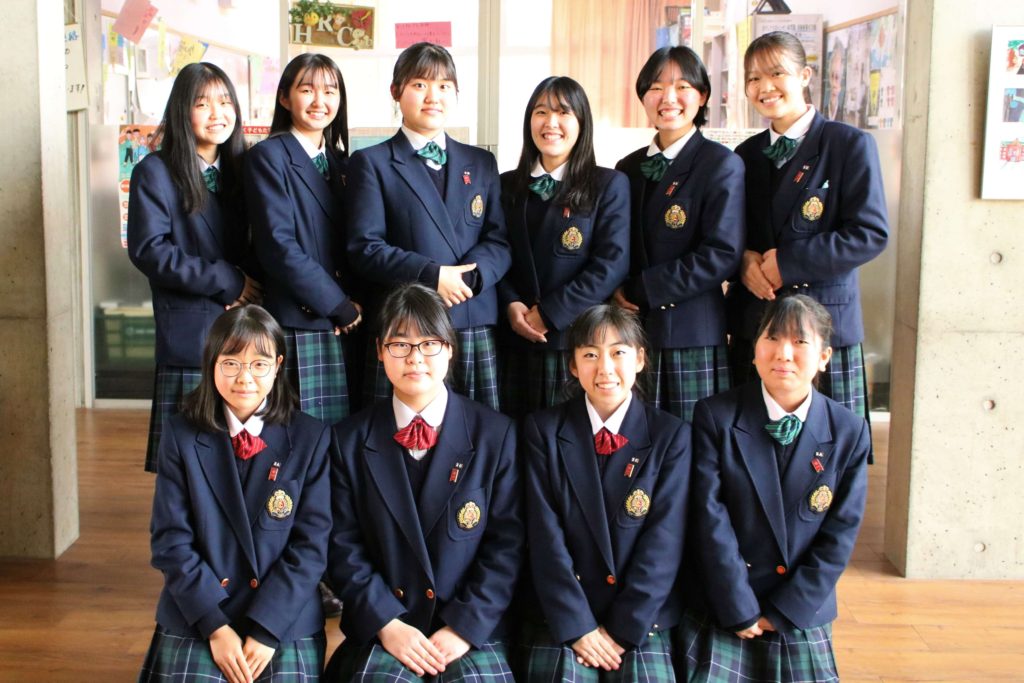
Eishin Gakuen, a junior and senior high school located in Fukuyama City of Hiroshima that was founded over 117 years ago, has a club called the Human Rights Club that engages with issues surrounding human rights and peace. Formed in 2005 through a merger of three clubs that were concerned with human rights issues, the club currently has 24 members, ranging from first-year students (first-year junior high school students) to sixth-year students (third-year senior high school students). The club conducts research on volunteer work, human rights, and peace under the guiding theme of “Hand in hand: Promoting peace and human rights in local and international communities as junior and senior high school students.” We spoke to the members about their club activities and their thoughts on these activities.
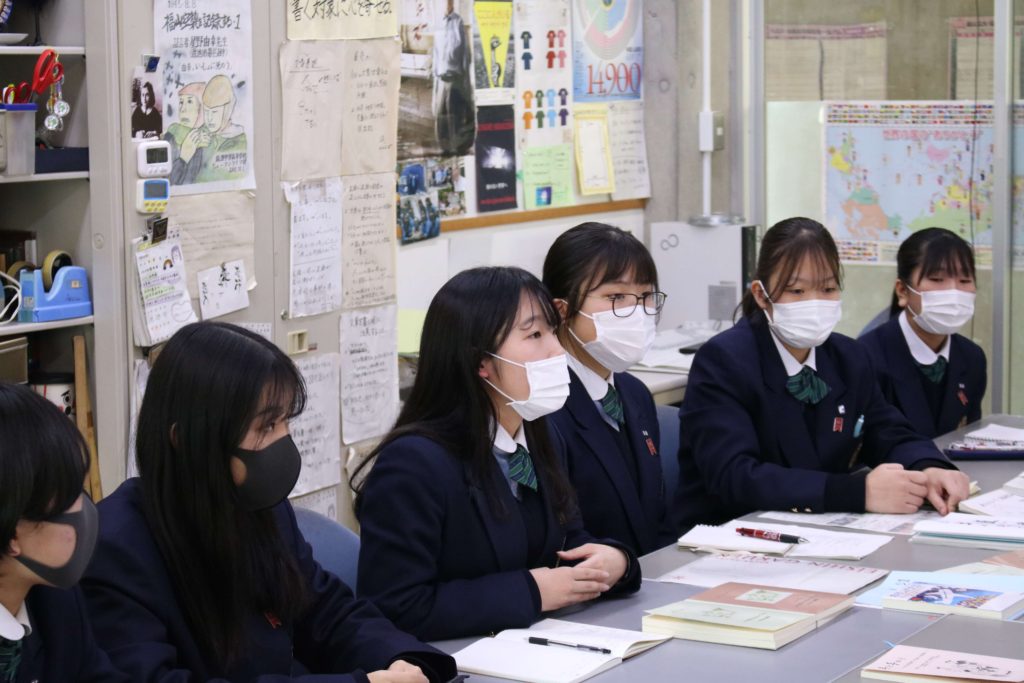
Human rights are founded on respect for the rights of individuals. Driven by the belief that peace begins with valuing one’s own life and that of everyone else, the club is actively engaged in activities that bring smiles to the faces of people and towns, with special emphasis on forging bonds with local communities. We asked the members to tell us more about the three major kinds of activities they are involved in.
The first is activities aimed at the abolition of nuclear weapons. The “Abolish Nuclear Weapons! Hiroshima Junior and Senior High School Students’ Signature Campaign” jointly organized by Eishin Gakuen, Okinawa Shogaku Junior High School & High School, and Hiroshima Jogakuin Junior & Senior High School amassed around 600,000 signatures, which have been submitted to the United Nations.
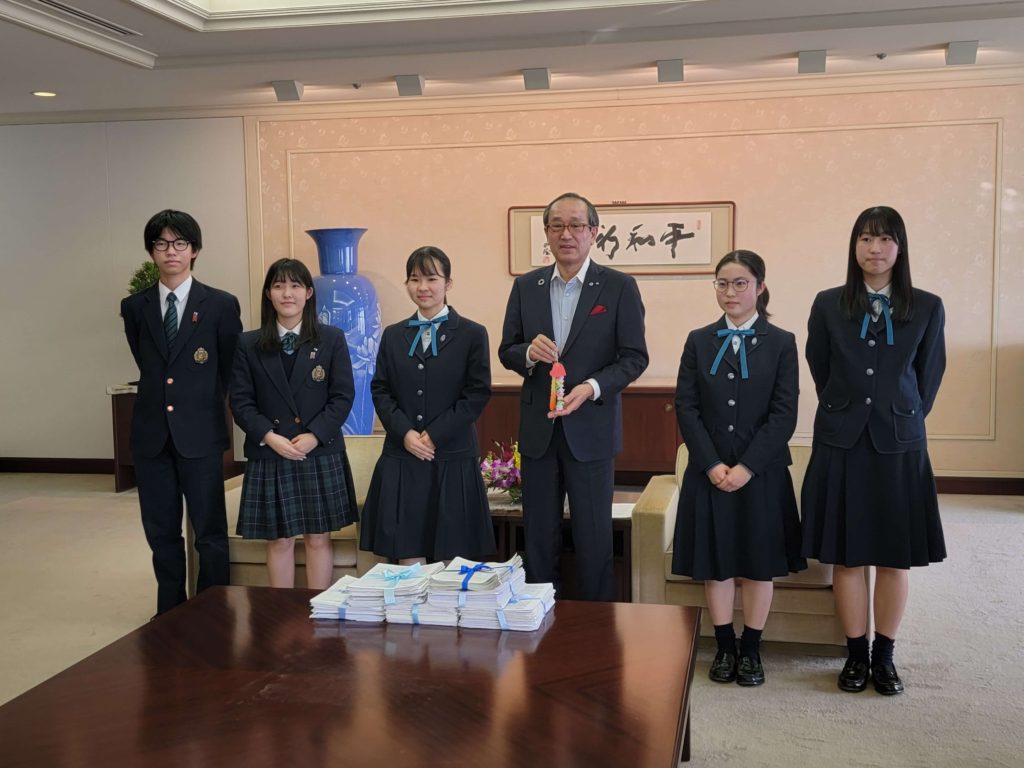
Visit to the Mayor of Hiroshima to submit the signatures for the petition to abolish nuclear weapons (October 27th, 2021)
In recognition of their efforts in the signature campaign, 12 members of the club have been dispatched to United Nations offices in New York, Vienna, and Geneva by the Ministry of Foreign Affairs as Special Youth Ambassadors for Denuclearization. Sakami Tomoka, who is currently in the 6th year, gave a speech in English at the United Nations headquarters in New York in 2019 on her wish for the abolition of nuclear weapons. Looking back on the opportunity, she told us, “A foreigner in the audience said that they were glad to know that there are powerful youths like us who are standing up, which reminded me of the significance of our activities as high school students in Hiroshima. I had been frustrated and disappointed with the situation surrounding nuclear weapons, and I believed there was a need for us to take a stronger stand on this issue.”
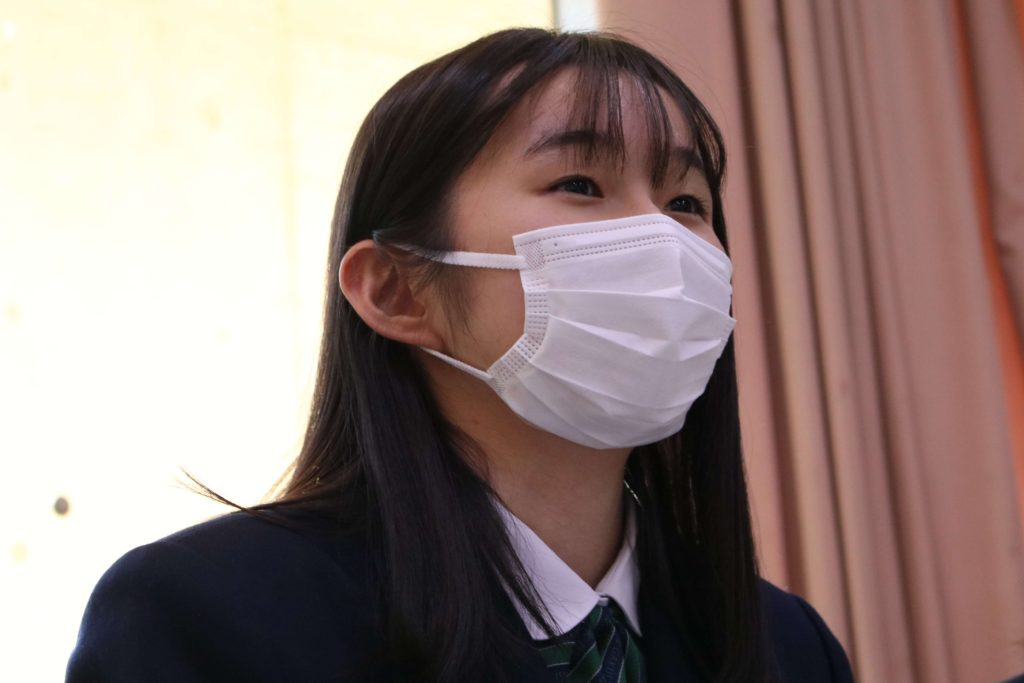
Sakami Tomoka, a 6th-year student
The members have also borne witness to the testimonies of A-bomb survivors and preserved their accounts in the form of booklets. In 2017, they had interviewed Mr. Tsuboi Sunao (who passed away in October 2021), an A-bomb survivor who was also the Director of the Hiroshima Prefectural Confederation of A-bomb Sufferers Organizations. His account has been published as A Human Being, Sunao Tsuboi: Never Give Up! in both Japanese and English. The club is currently in the process of producing a booklet based on online interviews conducted with Ms. Moritaki Haruko, advisor to the Hiroshima Alliance for Nuclear Weapons Abolition.
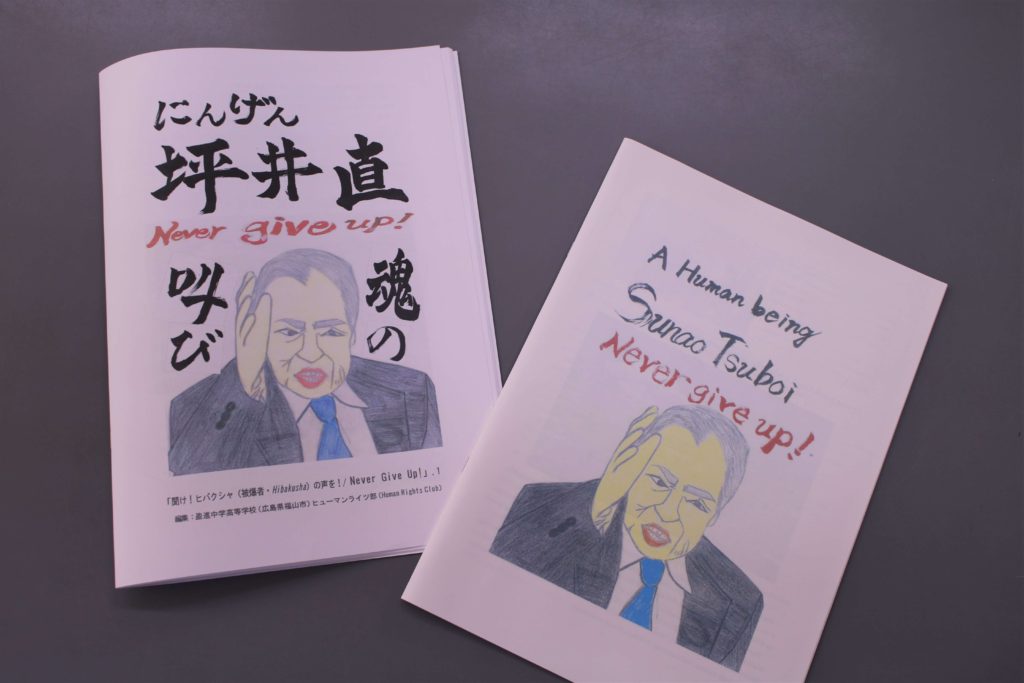
Compiling Mr. Tsuboi Sunao’s account of the atomic bombing and his desire for the abolition of nuclear weapons into a booklet, which has been published in both Japanese and English
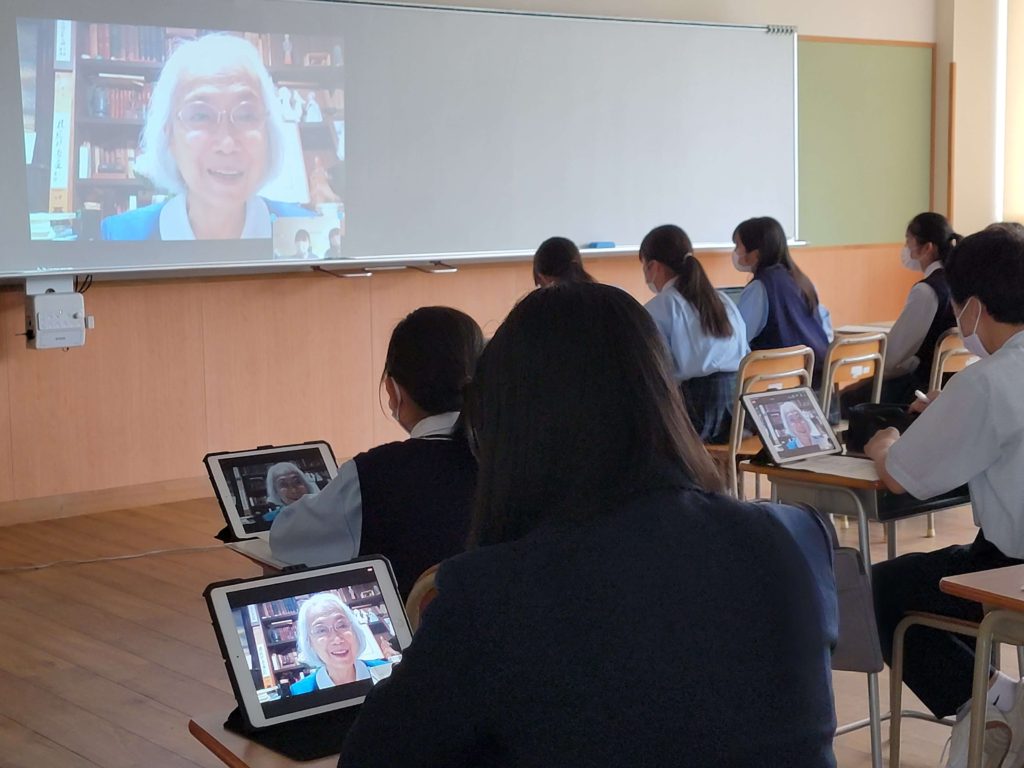
Interviewing Ms. Moritaki Haruko online for an upcoming booklet
The second type of activities is learning from issues surrounding leprosy. For the past 25 years, members of the club have been reflecting on the meaning of human life and what society should look like through their interactions with the residents of National Sanatorium Nagashima-Aiseien in Okayama Prefecture and fieldwork carried out at the sanatorium. An essay written by a member of the club won the Minister of Education Award in 2014 and was adapted into the educational film Hello Mr. Kim Tegu: What I Have Learned from Leprosy, which has since been screened at human rights conventions throughout Japan. The club was also involved in creating a map of Nagashima-Aiseien for children in 2018.
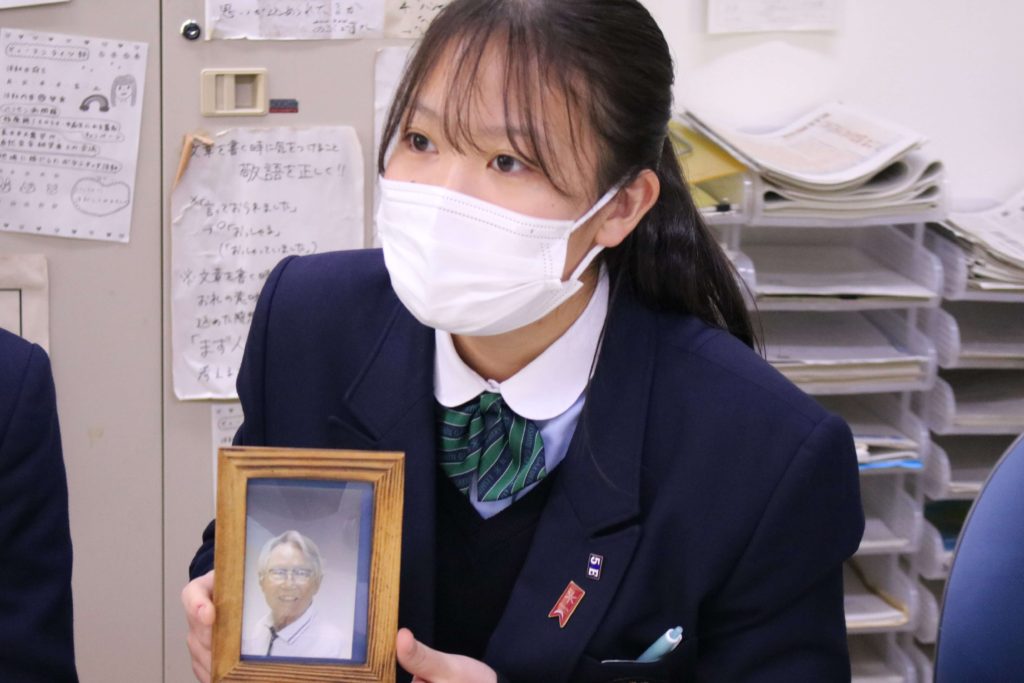
Nobu Yasuyo, a 5th-year student
The third type of activities is providing support for and interacting with people who have been affected by the Great East Japan Earthquake and other natural disasters. For three consecutive years from 2011, members of the club visited Fukushima Prefecture and Iwanuma in Miyagi Prefecture to interact with survivors of the earthquake. Passing on their credo of “always standing with the disaster victims” from one generation of students to the next, members of the club remain actively in touch with those in the disaster areas today through letters, phone calls, and other forms of interactions. On the 11th (the day the Great East Japan Earthquake struck) of every month, the members stand at the school gates and call on students coming to school to keep the disaster victims in their thoughts.
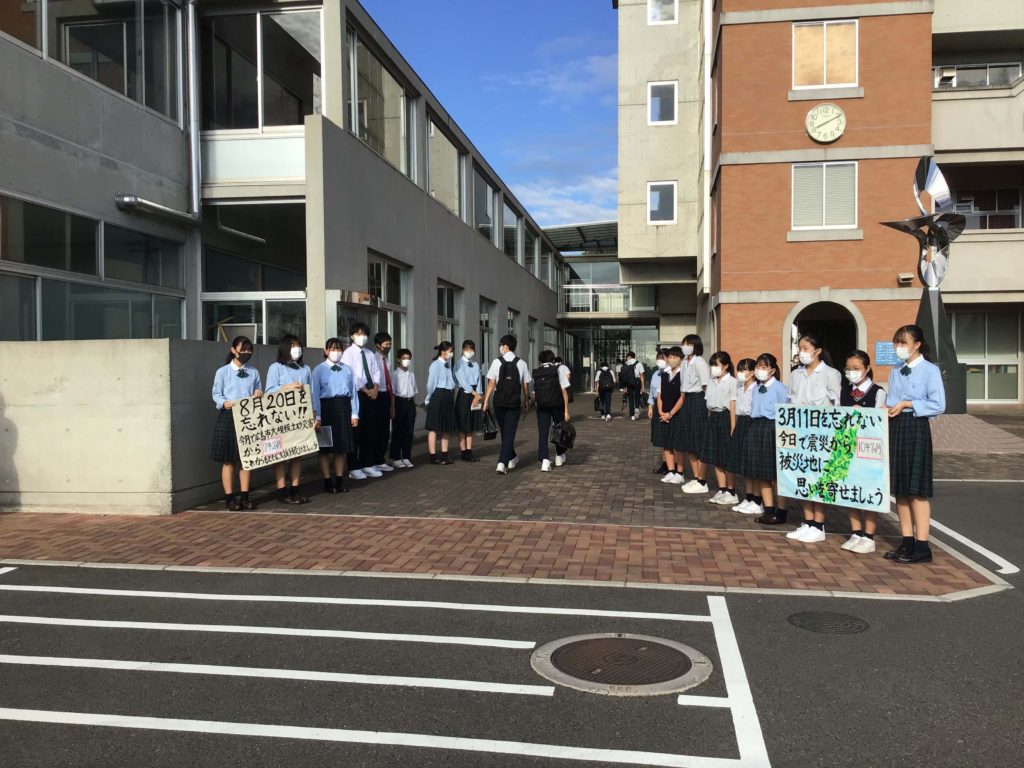
On “Remembrance Day,” the 11th of every month, club members stand at the school gates to call on students coming to school to keep the disaster victims in their thoughts.
The club members also enjoy a longstanding relationship with Ms. Kato Ritsuko, who had lost her son in the Great Hanshin-Awaji Earthquake. “We are all very close to her and address her affectionately as ‘Mother Ritsuko.’ She even comes to our lectures and cheers us on, since the 5th-graders among us will be taking our university entrance exams next year,” the 5th-year student Ito Sakura told us with a smile.
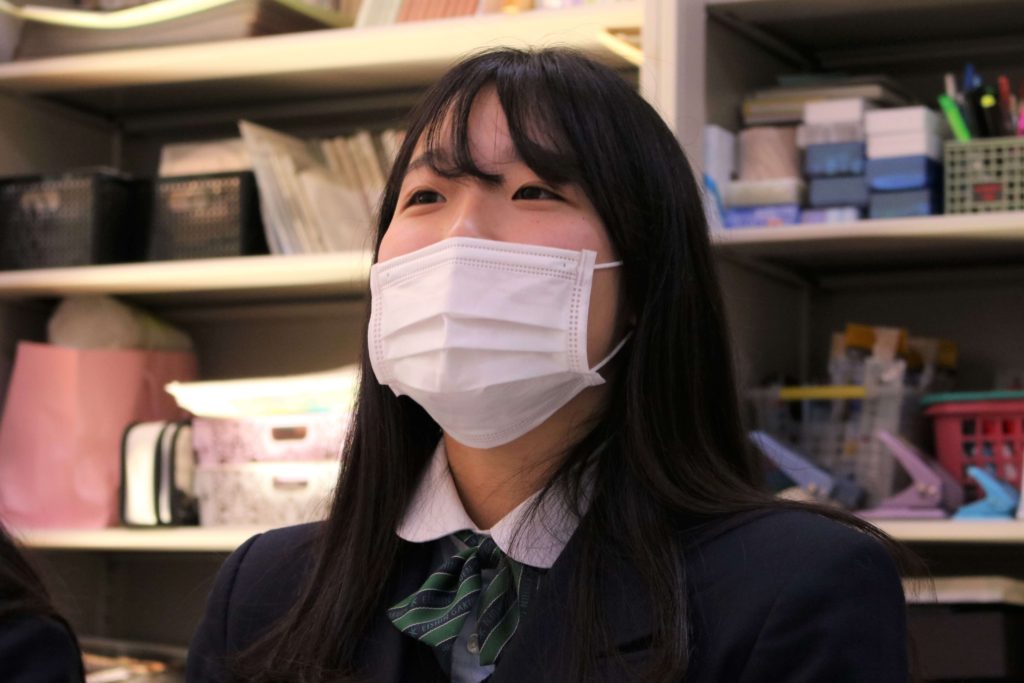
Ito Sakura, a 5th-year student
Other activities members of the Human Rights Club are involved in include performing sign language songs at facilities for people with disabilities and human rights lectures, as well as serving as volunteer guides at the Holocaust Education Center in Fukuyama City. They pour their heart and soul equally into everything they do as they continue to participate actively in social contribution activities that only high school students are capable of.
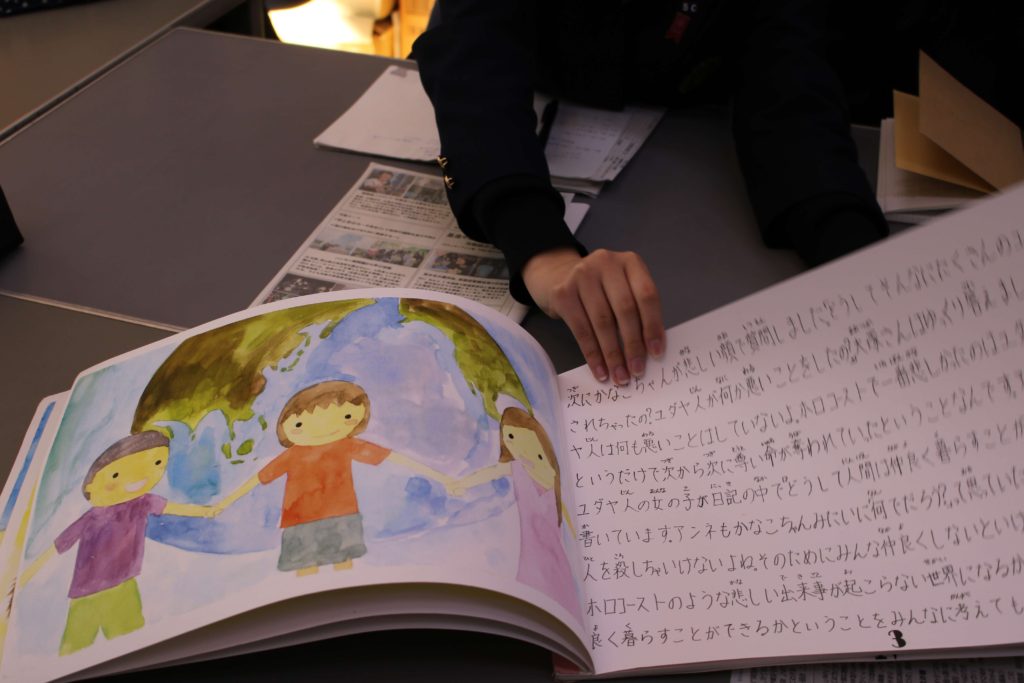
Handmade materials used by the volunteer guides at the Holocaust Education Center
Finally, we asked some members what they have learned after joining the club and how they can make use of these lessons in the future.
“I have broadened my horizons, especially with regard to my thoughts on peace and my interest in social issues.”
“I’ve had many precious experiences while being surrounded by the warmth of human touch. I’ve realized it’s more important to stand with others instead of simply offering them our sympathy.”
“I’ve learned how frightening indifference can be and how complex social issues actually are. I hope I can contribute by doing what I can as an individual from wherever I can after graduation.”
“As I learned more about the feelings of A-bomb survivors and people affected by leprosy, I realized how lucky I actually am, which has totally transformed my values.”
“Both leprosy and the abolition of nuclear weapons are issues that must be passed on to the next generation. I hope to continue being involved in peace efforts, and I have no doubt that what I’ve learned at the club will guide me for the rest of my life.”
(School profile)
Eishin Gakuen’s Human Rights Club
https://www.eishin.ed.jp/club/hrc/
Tags associated with this article



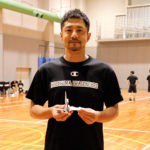
![[Interview] Promoting Active Peace and SDGs Sumitomo Forestry [Interview] Promoting Active Peace and SDGs Sumitomo Forestry](https://hiroshimaforpeace.com/en/wp-content/uploads/sites/2/2021/08/1_飯塚さん-150x150.png)
![[Interview]Promoting Active Peace and SDGs Mitsubishi Chemical Holdings [Interview]Promoting Active Peace and SDGs Mitsubishi Chemical Holdings](https://hiroshimaforpeace.com/en/wp-content/uploads/sites/2/2021/08/2021-06-16-121-150x150.png)


